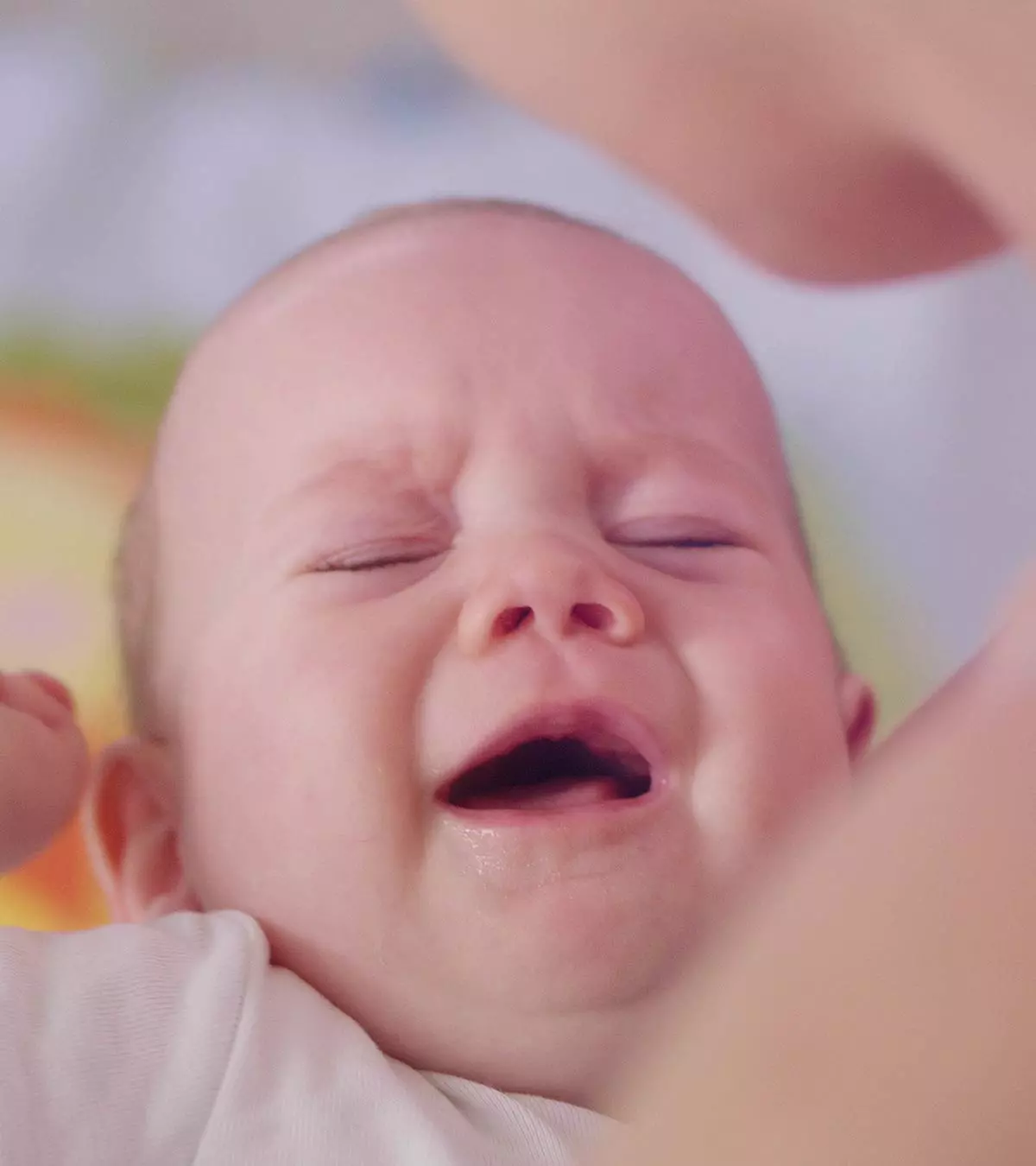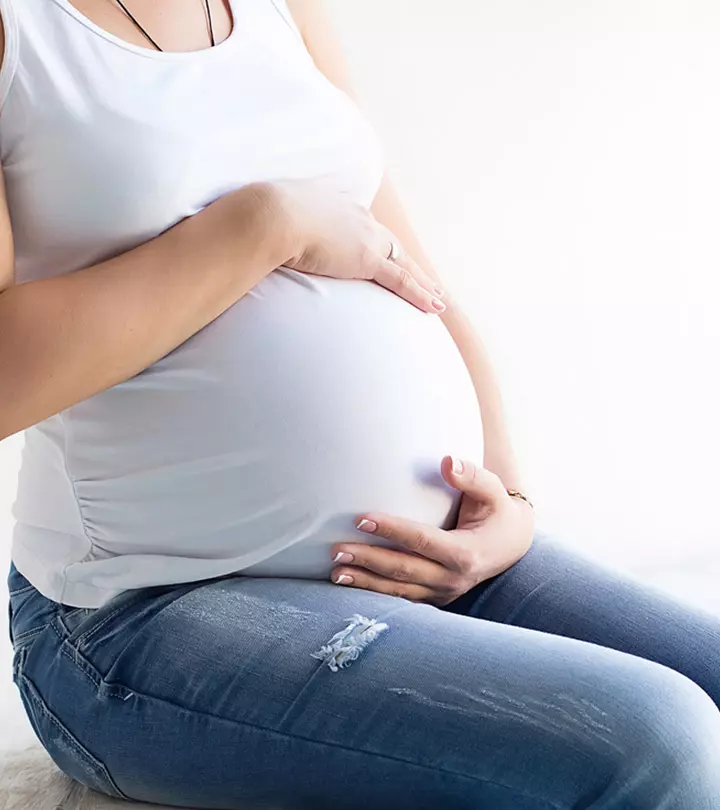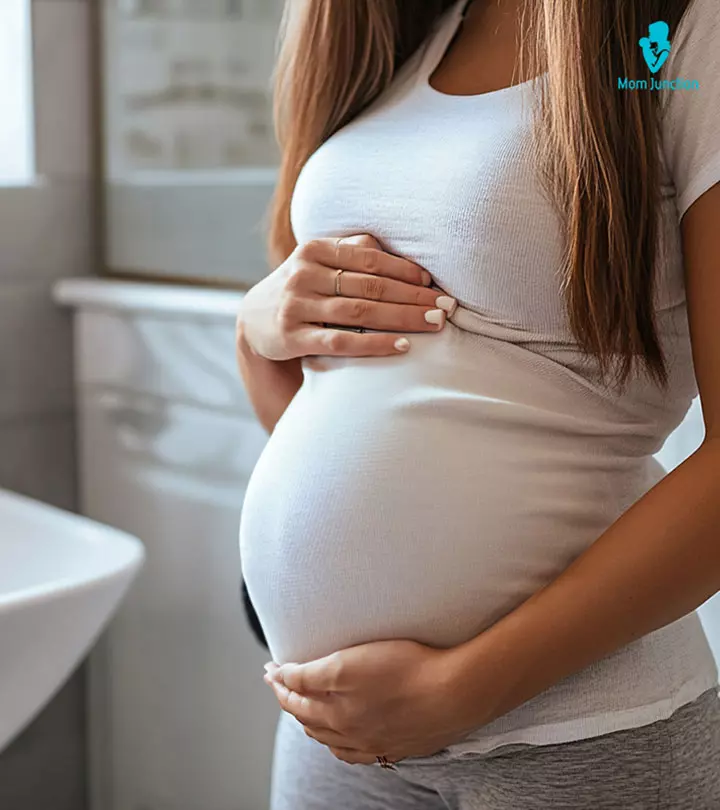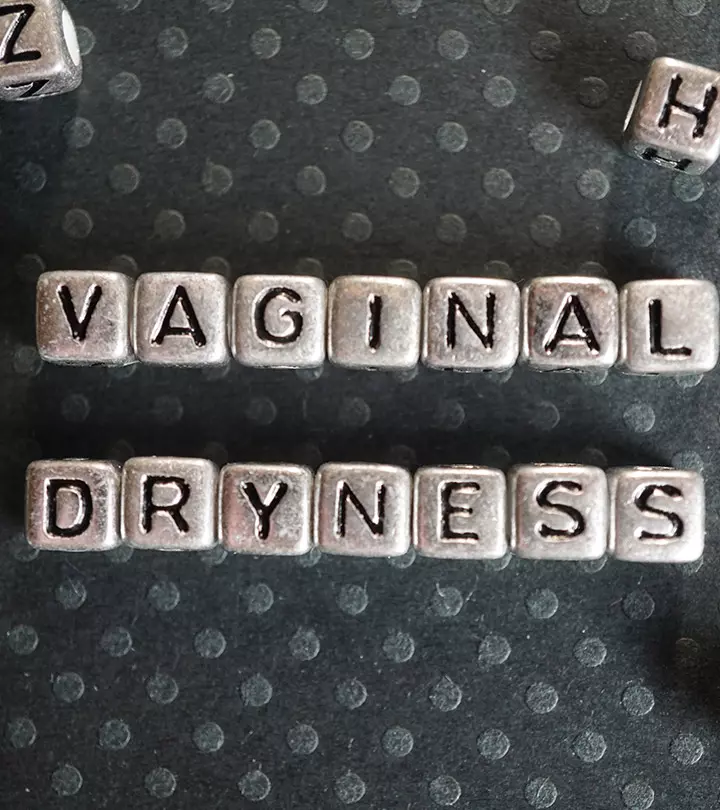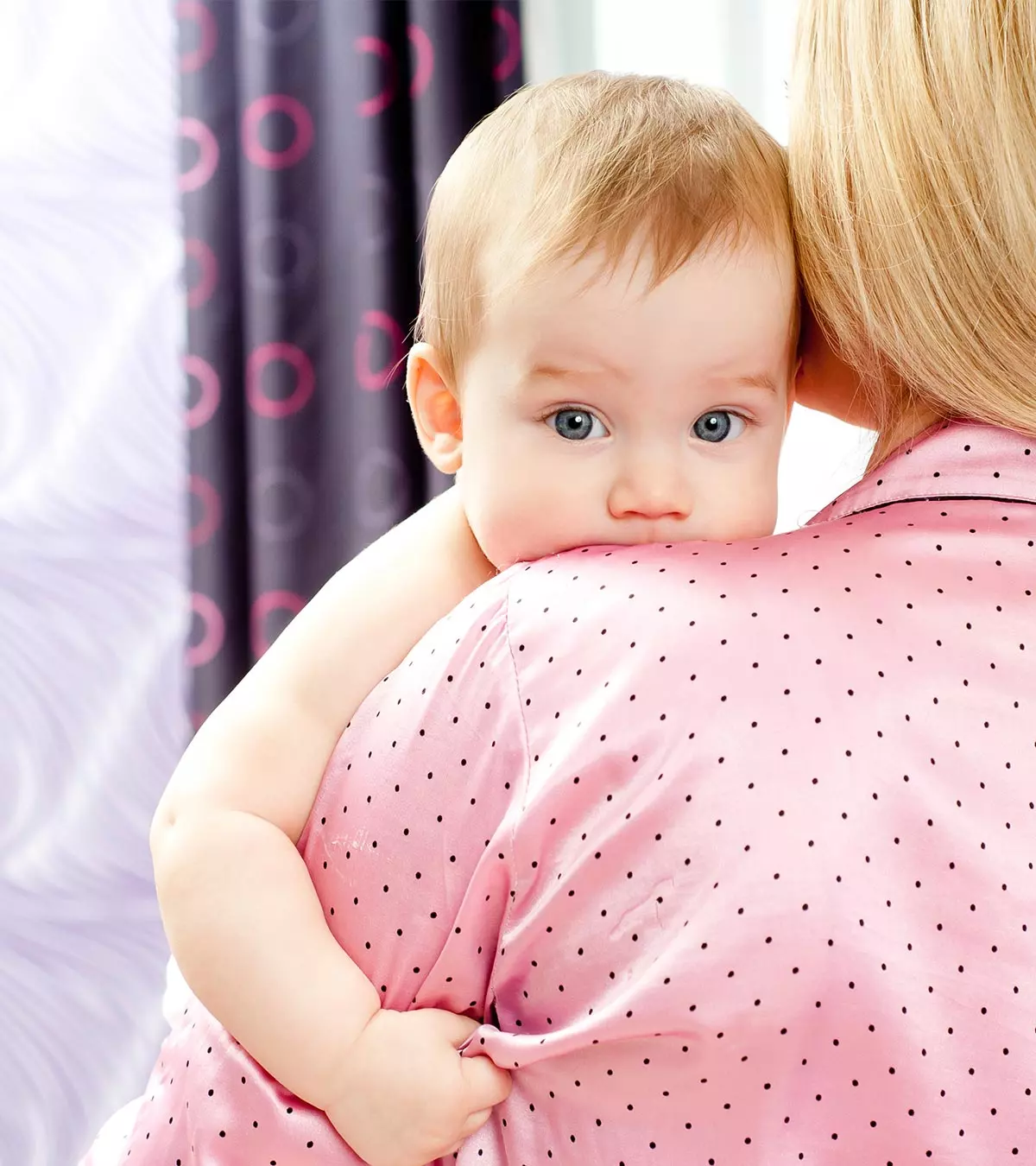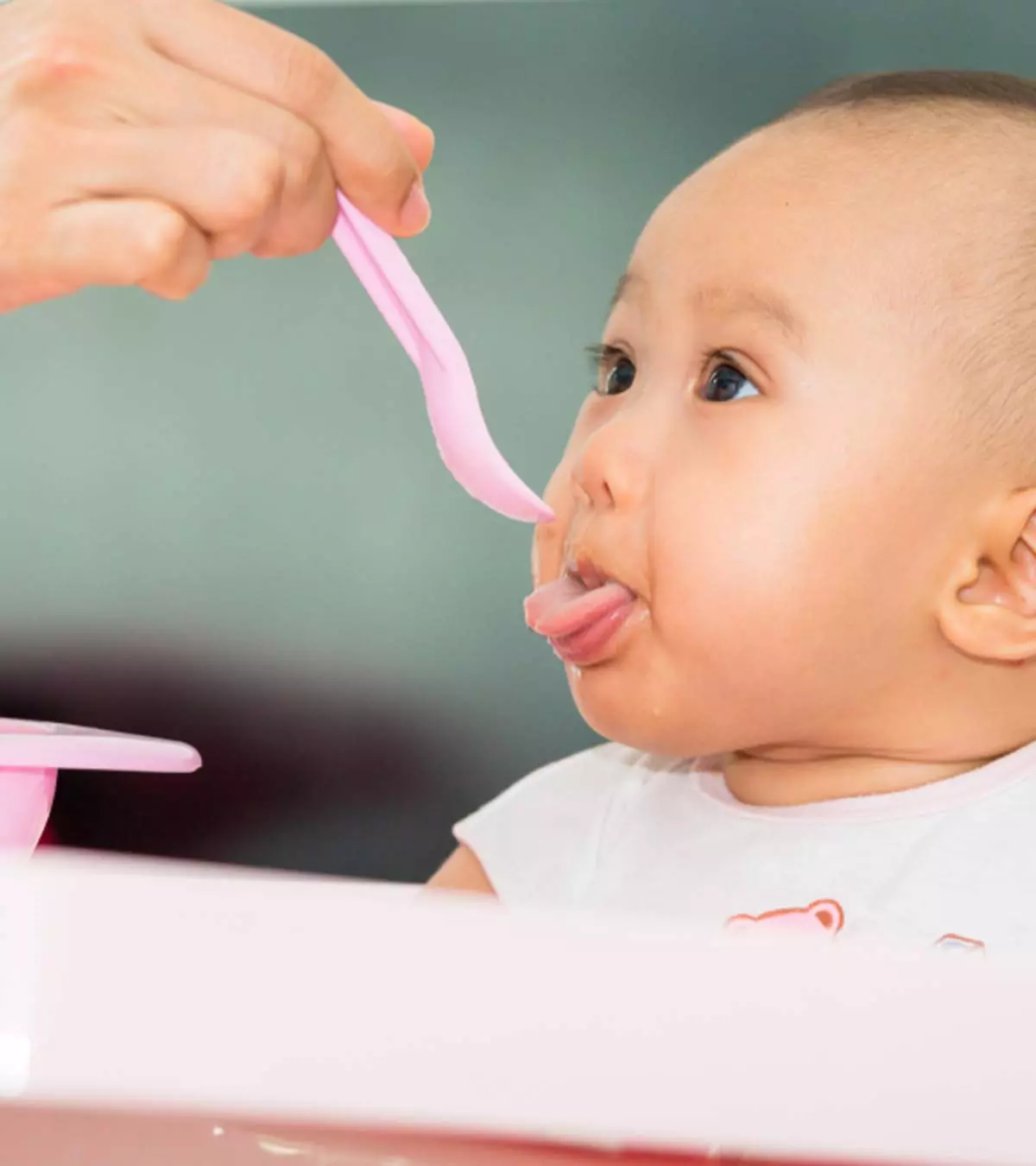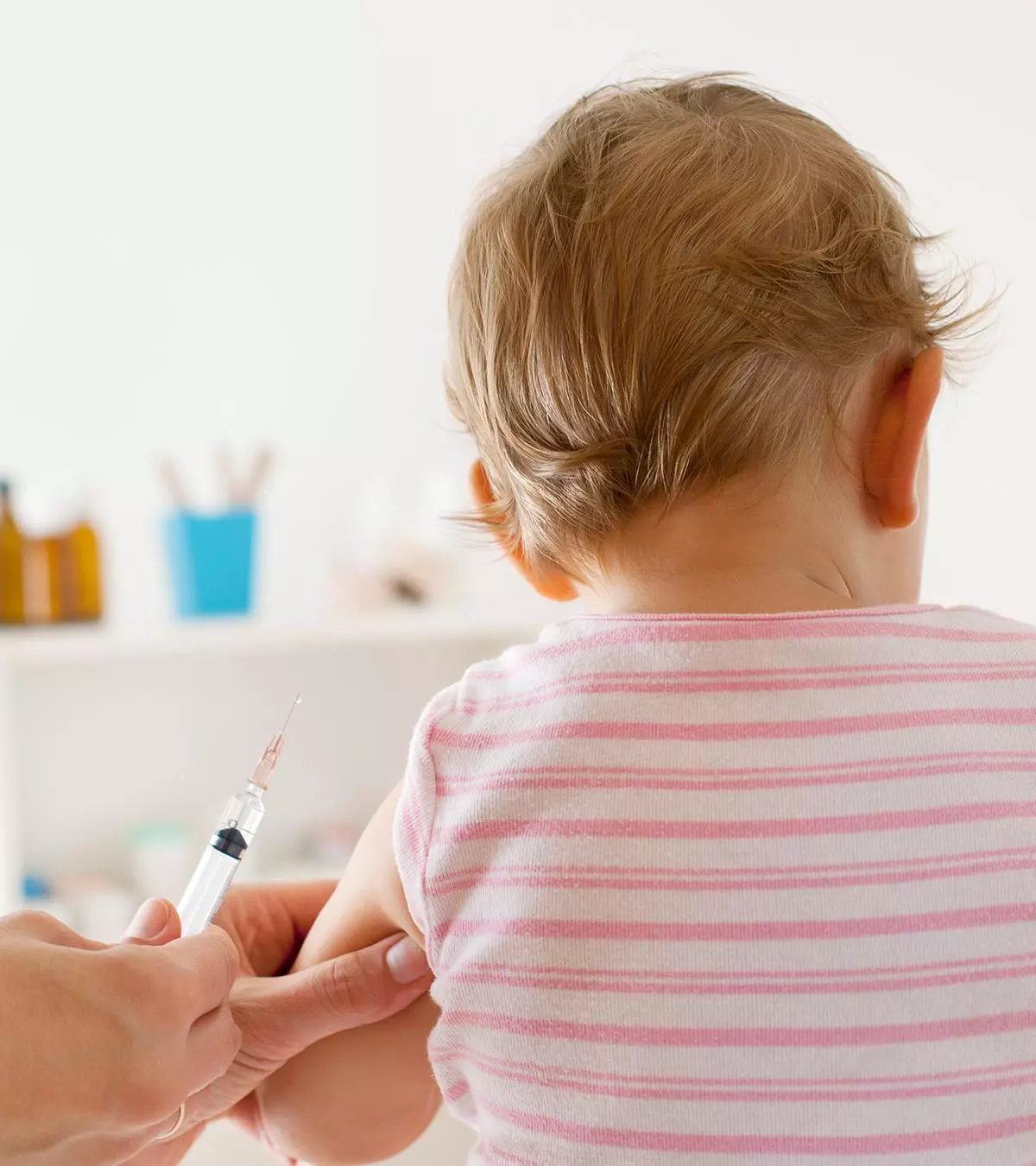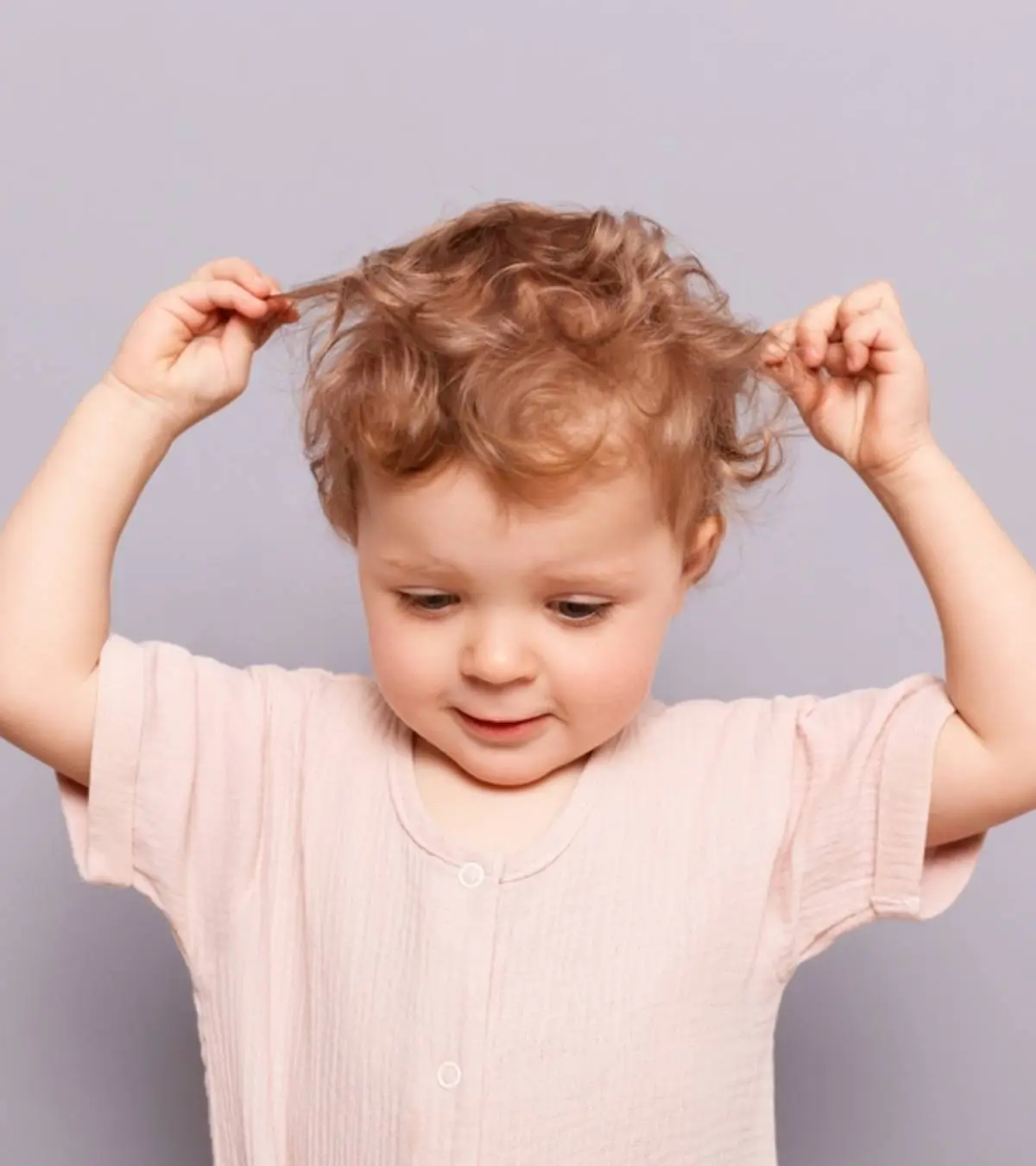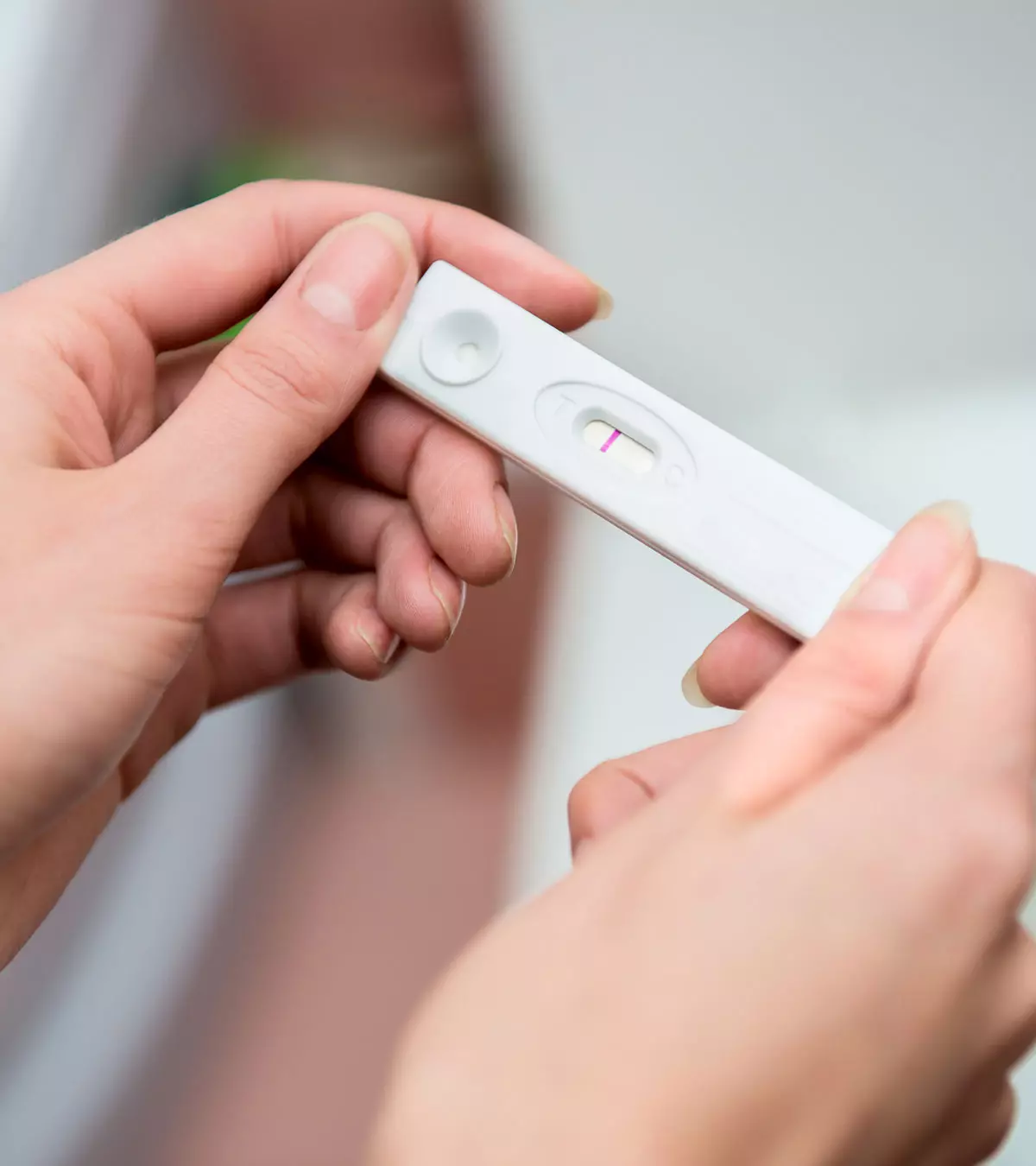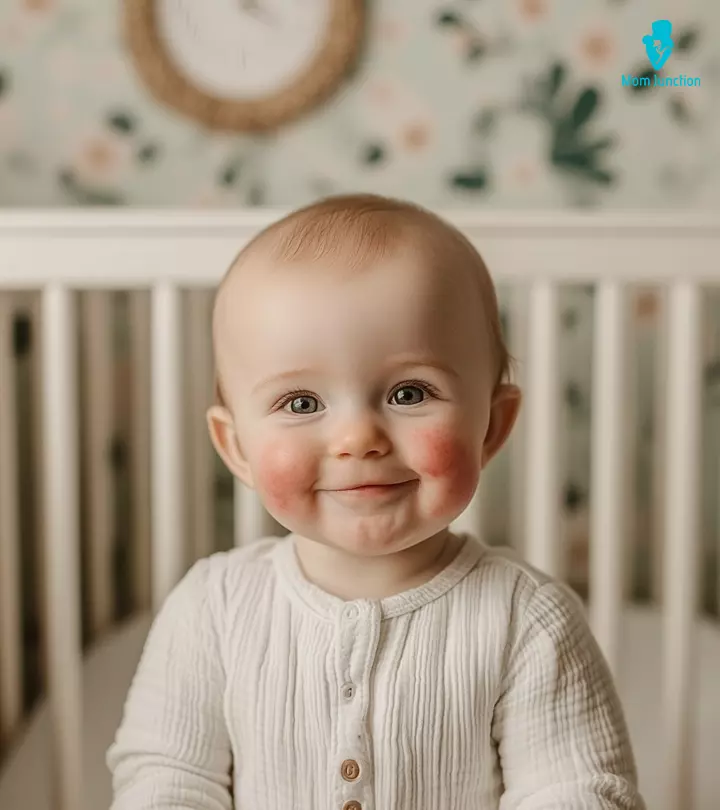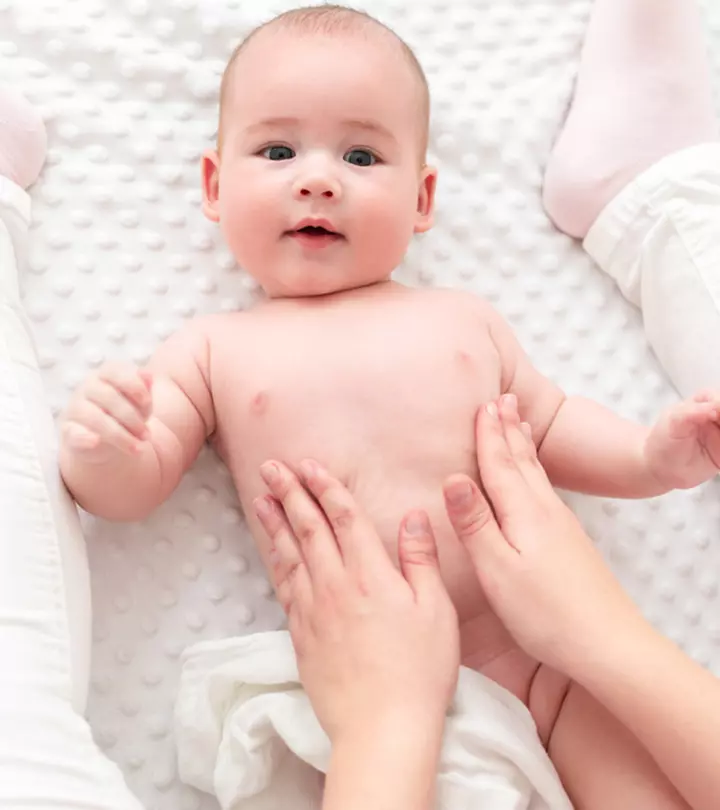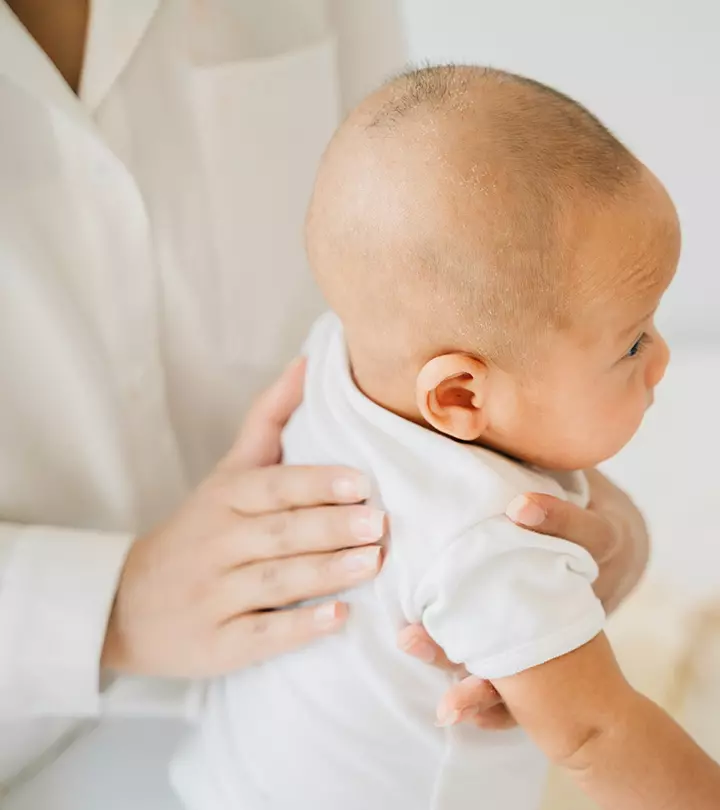
Image: iStock
Hiccups are the repeated contractions of the diaphragm (1). These contractions cause the vocal cords to shut, creating the characteristic ‘hic’ sound. Newborns hiccups are usually not a cause for concern until your baby is a year old. In fact, they might aid in the development of the baby’s respiratory system. However, if the hiccups seem odd or are frequent after the age of one year, talk to the baby’s pediatrician about it.
Read about the causes, treatment, and prevention of newborn hiccups in this post.
Key Pointers
- The main cause of hiccups is the trigger of the hiccups reflex, which establishes the action of the diaphragm, muscles controlling the trachea, and nerves.
- Changing feeding positions, slowing down feeding, holding baby upright, taking a break and burp, and using a pacifier help relieve hiccups in babies.
- Consult a doctor if hiccups are persistent and interfere with the baby’s eating and sleeping patterns.
What Causes Hiccups In Babies?
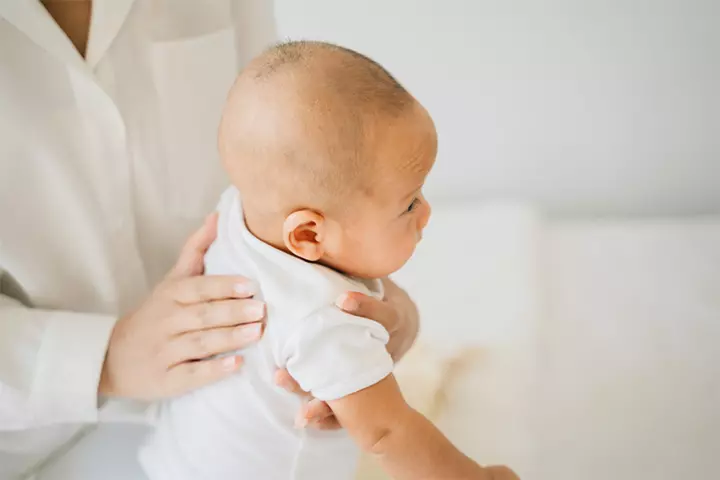
The exact cause of hiccups in infants is not known (2). Hiccups fundamentally occur due to the trigger of the hiccups reflex, which is constituted of the simultaneous action of the diaphragm, muscles that control the trachea, and nerves. If the nerves involved in the reflex are triggered or irritated, it leads to hiccups, which are regulated by parts of the brain and the spinal cord.
Several conditions may trigger or irritate the hiccup reflex nerves. The most common causes are swallowing excess air while feeding and overfeeding a baby (3). Some newborns may have hiccups even without any noticeable triggers since hiccups tend to be common during the first few months of the baby’s life (4).
 Did you know?
Did you know?How To Stop A Baby’s Hiccups?
Hiccups generally go away themselves, and there is no need to intervene. Nevertheless, you may consider the following interventions to help relieve hiccups in babies (3).
- Change feeding positions: In the case of bottle-fed babies, feeding them in an upright position prevents extra air from entering their stomachs, reducing hiccups.
- Slow down feeding: If you bottle-feed your baby at a fast pace, there are chances that their stomach will expand swiftly and push against the diaphragm, causing hiccups. You may try slow bottle-feeding techniques, such as paced bottle-feeding, to reduce hiccups.

- Hold your baby upright: Hold your baby upright immediately after bottle-feeding or breastfeeding them. It may help the gulped air escape from their stomach.
- Take a break and burp: Burp your baby between feeds to release the trapped gas from the stomach and prevent hiccups.
- Use a pacifier: A baby’s pacifier may help relax the diaphragm and reduce hiccups. However, do not force the baby to have the pacifier if they repeatedly decline it.

- Try gripe water: Gripe water is a mixture of several herbs and is often available as an over-the-counter (OTC) medicine. It is mainly recommended for babies with colic or gastrointestinal disorders. You may consider giving gripe water for newborn hiccups. Gripe water can be given to babies over one month old, but it is essential to consult a healthcare professional for the appropriate dosage and frequency. Also, note that not all babies may respond the same way.
A mother and teacher who goes by the blog name Mama Escapade noticed that her baby frequently got hiccups after feeding sessions. When her usual remedies didn’t work, she decided to try an unconventional approach, which always works for her. She suggests, “Tear a piece of newspaper edge and lick it with your saliva front and back and stick it on the baby’s forehead. Once the newspaper falls off their forehead, the hiccups are cured (i).”
A baby may not be bothered by hiccups and continue eating and sleeping even with them (5). Research suggests that hiccups may benefit infants since the hiccup reflex triggers a large wave of brain signals. These signals may help the baby’s brain learn to monitor and voluntarily control the breathing muscles (6). Therefore, if the baby does not seem bothered with the hiccups, you may leave them alone and wait for the hiccups to stop, which may happen in some minutes.
 Point to consider
Point to considerWhat Not To Do To Stop The Hiccups?
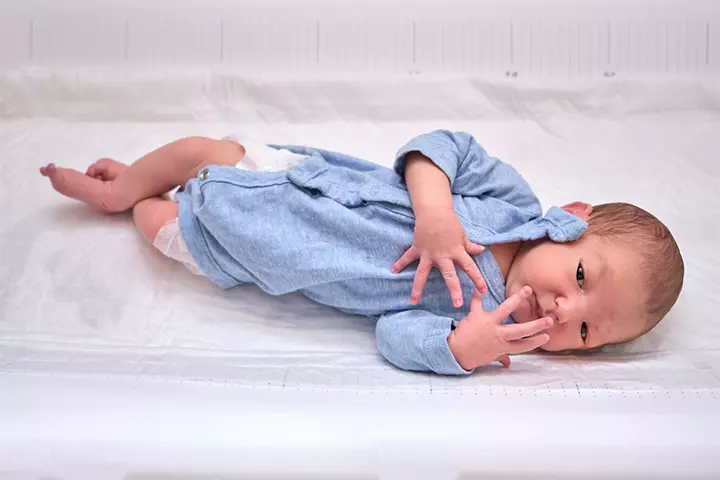
There are various remedies available online related to reducing hiccups. Some of these remedies or techniques include the following, and you must never try them on the baby (7).
- Startling the baby suddenly to overwhelm the vagus nerve (nerve from the brain to the abdomen)
- Letting a spoonful of sugar dissolve on their tongue
- Tickling the roof of their mouth with a Q-tip or similar object
- Holding their breath
How To Prevent Hiccups In Babies?
You may prevent hiccups in babies by avoiding the potential triggers. Below are a few methods that may help prevent hiccups in newborns and babies.
- Avoid feeding at a fast pace.
- Do not tip the bottle vertical since it could cause the baby to gulp large quantities of milk and air.
- Do not overfeed the baby.
- Burp the baby often during and after a feed.
- Do not lay your baby down right after they have completed feeding.
 Did you know?
Did you know?When To Call A Doctor?

You may see a doctor in the following scenarios.
- Hiccups are persistent and interfere with the baby’s eating and sleeping pattern.
- Hiccups are accompanied by coughing, spitting up a small quantity of milk, crying, and arching the back, especially after feeding. These signs may indicate acid reflux.
- The baby shows frequent hiccups even after the age of one year.
Frequently Asked Questions
1. How long do newborn hiccups last?
Hiccups usually last for around five to ten minutes. If your baby has hiccups for hours, speaking to a pediatrician is advisable. Generally, regular hiccups in babies go away by 12 months of age (8).
2. Is it alright to let my baby lay down while hiccuping?
Babies can sleep while hiccuping (5). Thus, laying your baby down while hiccuping shouldn’t be a problem unless suggested otherwise by a healthcare professional.
3. Are there any long-term effects of hiccups in newborns?
There are typically no long-term effects of hiccups on babies as they are generally harmless and do not necessitate any treatment unless there is an underlying cause (8).
Newborn hiccups are usually caused due to overfeeding and excess air intake. Hiccups in babies are more common during the initial months of birth. However, they resolve spontaneously without causing any harm to your baby. Certain measures, such as changing feeding positions, slow feeding, sucking on a pacifier, burping the baby after a feed, etc., could help reduce or prevent hiccups in babies. Nevertheless, you may contact a pediatrician if your baby has persistent hiccups even after they cross the one-year mark or have hiccups along with cough and spit-ups.
Infographic: Is There A Way To Stop A Baby’s Hiccups?
Hiccups usually go away on their own, but a little extra assistance can be very helpful when it comes to soothing a baby’s hiccups. This helpful infographic will explore easy and efficient methods to stop those annoying hiccups quickly.

Illustration: Momjunction Design Team
Illustration: Newborn Hiccups: Causes Treatment And Tips To Prevent

Image: Dall·E/MomJunction Design Team
Personal Experience: Source
MomJunction articles include first-hand experiences to provide you with better insights through real-life narratives. Here are the sources of personal accounts referenced in this article.
i. Me as a Mama.https://mamaescapade.blogspot.com/2013/08/hiccups.html
References
- Hiccups.
https://my.clevelandclinic.org/health/diseases/17672-hiccups - Hiccups, Chronic.
https://rarediseases.org/rare-diseases/hiccups-chronic/ - Here’s What to Do When Your Baby Has the Hiccups.
https://health.clevelandclinic.org/heres-what-to-do-when-your-baby-has-the-hiccups - Newborn Common Causes For Concern.
https://www.amherstpediatrics.org/newborn-common-causes-for-concern - Your Baby at 1 Week.
https://www.ucsfbenioffchildrens.org/education/your-baby-at-1-week - Newborn baby hiccups could be key to brain development.
https://www.ucl.ac.uk/news/2019/nov/newborn-baby-hiccups-could-be-key-brain-development - True or False: Some Hiccup Remedies Actually Work.
https://winchesterhospital.org/health-library/article?id=156989 - Hiccups.
https://www.pregnancybirthbaby.org.au/hiccups - Daniel Howes; (2012); Hiccups: A new explanation for the mysterious reflex.
https://www.ncbi.nlm.nih.gov/pmc/articles/PMC3504071/#:~:text=The%20hiccup%20is%20a%20very,of%20milk%20in%20the%20meal - Child hiccups are seldom cause for alarm.
https://www.osfhealthcare.org/blog/child-hiccups/
Community Experiences
Join the conversation and become a part of our nurturing community! Share your stories, experiences, and insights to connect with fellow parents.
Read full bio of Dr. Anuradha Bansal
Read full bio of Sanjana Bhattacharjee
Read full bio of Dr. Ritika Shah
Read full bio of Vidya Tadapatri








